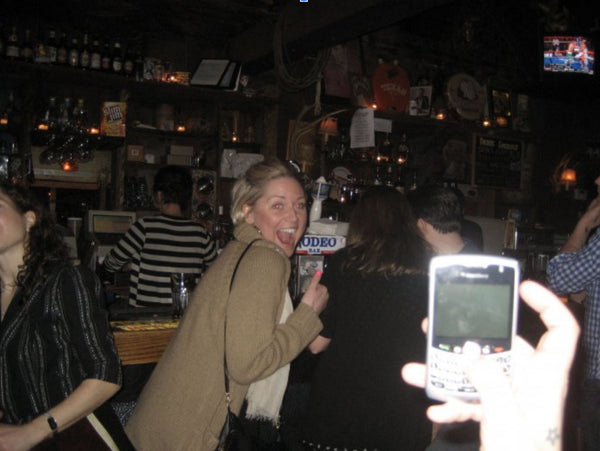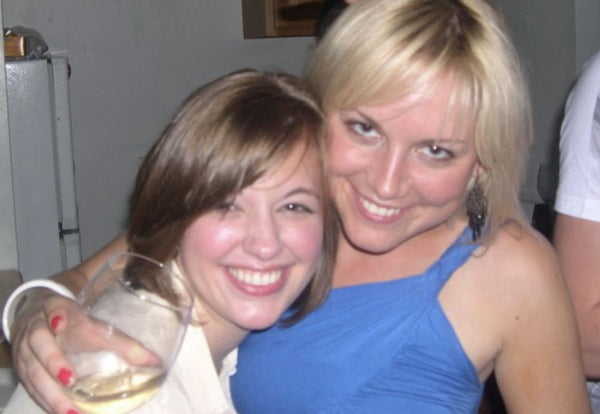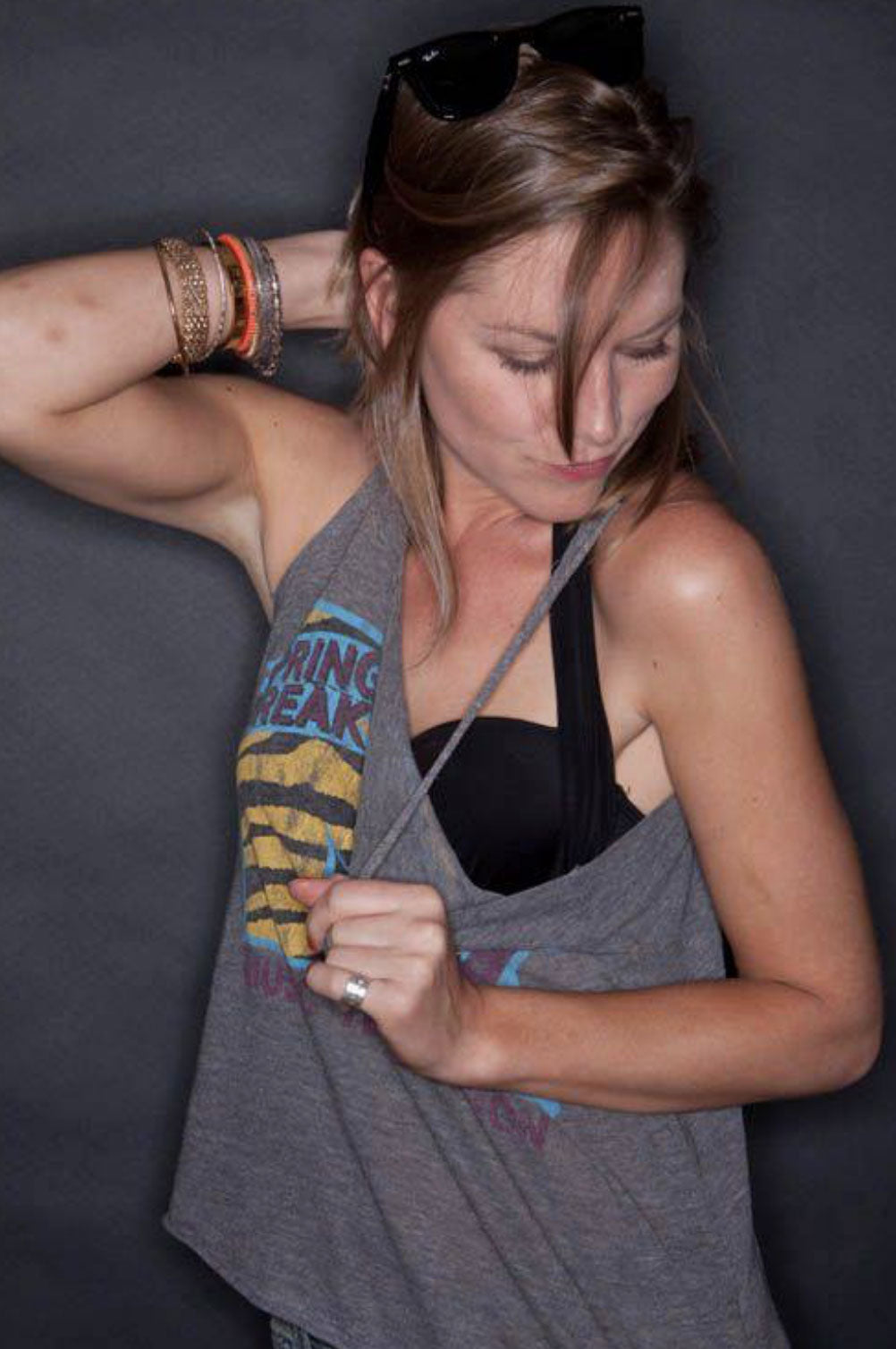Jesse Barton Shares Her Sobriety Journey
Openfit Trainer Jesse Barton Shares her Sobriety Journey in Celebration of National Recovery Month
September, 2021
September is National Recovery Month and our Openfit trainer, Jesse Barton, is 8 years sober.
Jesse is proud to share her sobriety journey with you which has helped shape who she is today. Here is her story:
I have been sober from alcohol for 8 years. I became sober in 2013. Around the age of 25, I quit my longterm dream of acting and felt lost. I didn’t know who I was if I wasn’t acting, I didn’t know if I had any other skills and was just very lost. I started drinking and soon became a full fledged alcoholic. I am very serious…. I would go out with a bottle of vodka in my purse and take shots throughout my day.
I made many questionable decisions, hurt myself, hurt my family, hurt my friends drinking like I was. In 2013, I had been accepted to grad school and knew I had to change my life. That was it for me. I could not continue drinking like this. With the help of MANY people, including a psychiatrist, I was able to get and stay sober. I am now living a life beyond my wildest dreams and I never saw this life for myself 8 years ago. I’m very proud of the person I have become.
Below are questions you, our members, have asked about Jesse and her personal story-- so be sure to check out her answers.
Jesse is happy to continue answering any and all questions you may have for her-- reach out to her on Instagram @fit_jab.
-
How do you help someone going through addiction?
First of all, the person really needs to be ready and willing to change. You cannot help someone who isn't ready. That's a sad reality, but so true. Sometimes you have to step back and allow the person to hit bottom. If they are in this stage, you (and other loved ones) can voice your concerns to them, and suggest that they get help. A 12 Step Program, a licensed therapist who is skilled in addiction treatment, and other sober people are great sources of help.
It's really important that the individual struggling with addiction knows that there are MANY other people who have achieved sobriety/recovery, because when you're in the throes of addiction, it feels like you're totally alone. I would never have been able to get sober without the support of others.
-
Was there something specific that happened to help you reach your conclusion? When did you come to that decision?
There were a few things. I knew I'd had a problem for a while. I'd take a week or two off drinking and decide that I didn't really have an issue, and then I'd "test the waters" again. That never ended well. I had many "bottoms" during my journey, but the one that finally propelled me into sobriety happened in the summer of 2013. I had a fight with my boyfriend at the time and decided to "drink about it." My boyfriend found me a few hours later, passed out, with my head at an awkward angle at the bottom of our apartment stoop in Brooklyn. He was scared and called the EMTs. I "came to" with them over the top of me, and at the time, my biggest fear was being hauled away to a psych ward or inpatient treatment center. This freaked me out so much that I decided enough was enough. Two days later, I went to an AA meeting near my apartment and never looked back.
-
What's the first step? I drink socially but always think of stopping.
The first step is deciding, honestly, whether or not drinking is a problem for you. Make a list. If the cons outweigh the pros, then it may be time to consider trying out abstinence. You could start with 30 days and see how that feels. No one can tell you whether or not you have a problem with drinking/are an alcoholic. Only you can come to that conclusion on your own.
If you DO decide you want to stop, start telling people that you're no longer drinking. This accountability piece helped me A LOT. I told everyone I knew that I was no longer drinking. Very few people took issue with this (I think most people knew I was struggling), but for those that did, I'd emphasize the reasons why I NEEDED to stop. This not only helped them understand why it was so important for me to stop drinking, but it also reaffirmed for ME why I needed to.
-
What's surprised you about sobriety?
Hmmm. A lot of things. The biggest one, in the beginning, was that I learned that I COULD do so many things without drinking. I was in a bad state; I needed alcohol to do even the most basic things, like grocery shopping, or making a phone call. So it was a big deal (and a little scary) to start doing those things with a clear mind. With each new thing I did soberly, I became stronger and more empowered. I also discovered that so many of the parties I was going to at the time were actually really lame. I stopped hanging out with a lot of the people I'd been hanging out with because I realized our relationship was built primarily, if not solely, on drinking.
-
Do you find it hard to not drink when others are around you?
No. Not at all anymore. At first, yes. But I avoided bars and parties for a while after I first got sober. Now don't get me wrong, sometimes I'll still lust over the IDEA of a glass of wine or a margarita when the weather is nice, but it's a passing lust. And my life is so big and so beautiful now (I have a son! And a husband! And a job I love!) that it's simply not worth the risk.
-
What role has fitness played in your sobriety journey?
A HUGE one. I'd started running at the age of 22 and that was one of the few constants that I'd held onto even during my darkest periods. When I got sober, I started running almost every day. I really relied on those feel good chemicals (endorphins, adrenaline, dopamine) to help me through the first year, and still do, to this day. I'd go on really long rambling runs all over Brooklyn. It was a great opportunity for me to work things out in my head.
-
What are a few things you have learned about yourself through this journey?
I learned that I can be scared and still do things without picking up a drink. I also learned to accept the parts of myself that I felt were quirky or weird. In short, I learned to love myself, flaws and all. I also learned that I don't enjoy being around drunk people.
-
Were you just getting sober when you met your husband? Is he sober as well?
I met my husband one year and one day after my sobriety date. And no, he is not sober, but he doesn't drink much at all these days.
-
What were some of the signs that made you realize you had a problem?
Constantly blacking out, feeling the need to drink everyday, being unable to stop drinking after one or two, constant panic attacks and the accompanying depression, waking up with unexplained bruises, and making really questionable life decisions.
Jesse’s life before beginning her sobriety journey:
Me at one of many bars…

I always had a drink in my hand.

This was a photoshoot shortly before I began my sobriety journey in 2013. Note the bruises on my arm. No idea how I got those. I also remember I had a bottle of vodka in my purse and would take shots in between pictures.

Resources:
Substance abuse and mental health services administration
This content is provided for informational and educational purposes only. It is not intended to be a substitute for professional medical advice, diagnosis, or treatment. You should not use this information to diagnose or treat any condition or disease without consulting with a qualified professional. Please consult a licensed or other qualified addiction, medical or other professional with any questions or concerns you may have regarding your condition.
